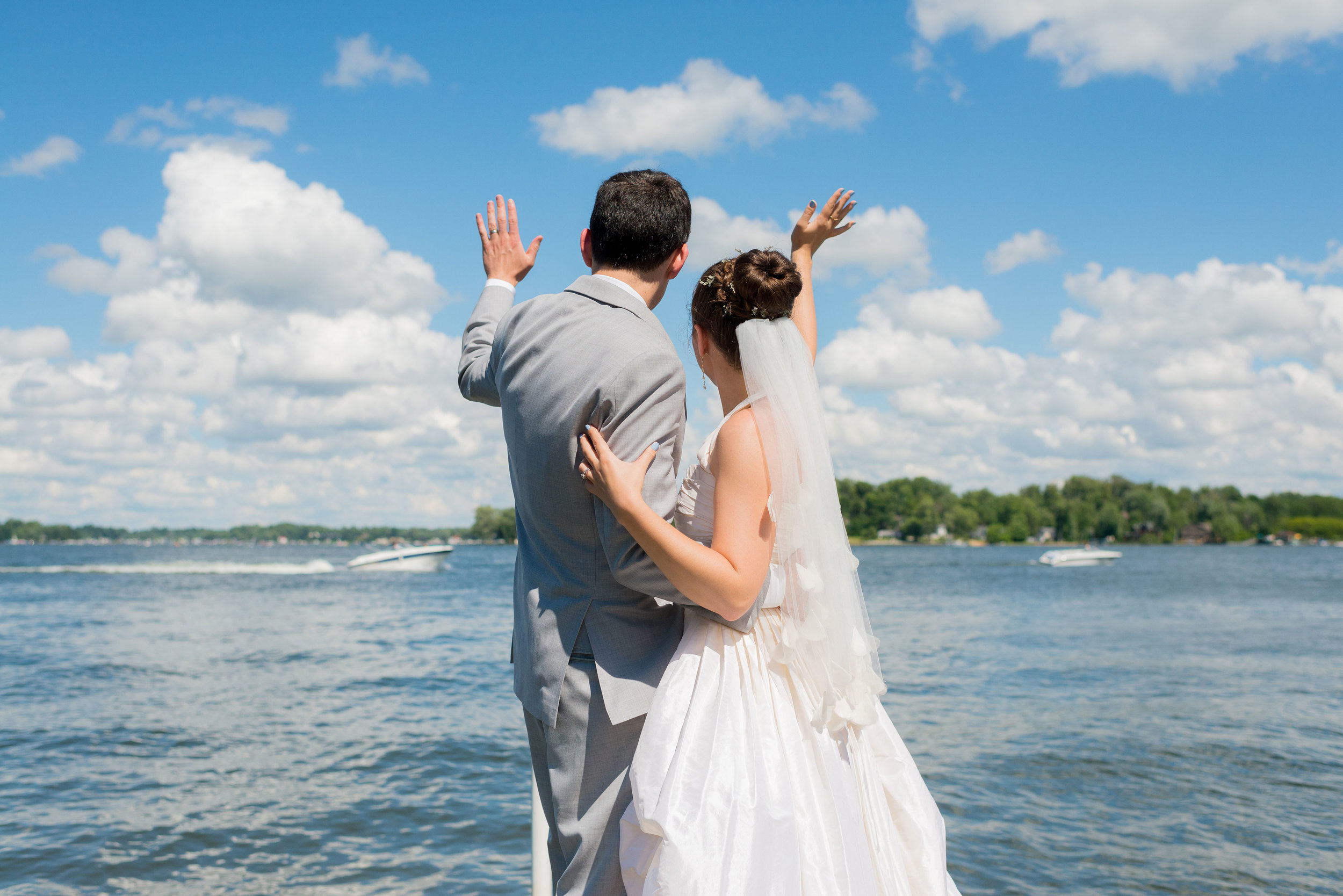Register for Social Justice // Fundraising for a Nonprofit on your Wedding Day
/Photo by Jenn Anibal
One year ago, my now-husband and I chose our wedding venue. A month later, a man who ran a presidential campaign on a platform of hate won by a wide margin in that town. Like many others, we wanted to mobilize resources for social issues put at risk by the election. Our wedding would be the largest set of consumer decisions that we would influence in a turbulent 2017, so we first set our sights on how to design a wedding day that celebrated our commitment, while also making a statement about what we stand for.
There are plenty of opportunities to weave social justice into your wedding celebration. Some couples find meaning in supporting small businesses owned by people of color, women, or the LGBT community. Others incorporate elements of community service, like delivering floral arrangements or leftover food to local organizations like nursing homes and homeless shelters. If you are in a financial position to do so, weddings also create a space to fundraise for a cause you care about. For instance, if you are planning to purchase wedding favors for your guests, you might opt to make a charitable donation instead. Alternatively, you may find that you have most of your day-to-day essentials and ask for donations in lieu of a traditional registry.
Curious about incorporating charitable donations into your event? Get started by asking yourselves a few questions.
1. What issues do we care about, and who is working in those spaces?
You’ve already spent an entire afternoon overwhelmed by the sheer number of cake flavors out there. And now, you need to sift through the 1.5 million registered nonprofits in the U.S. alone? With all of these options, it is no surprise that Americans tend to give to causes that affect them personally, such as their university, an illness that has impacted a loved one, or the animal shelter where they adopted their dog.
But, if you are willing to cast the net wider, nonprofits working in a variety of critical areas face immense challenges under the current administration. As a nonprofit professional who works with social justice initiatives around the world, I encourage you to explore how your wedding could tackle urgent issues from systemic racism, to climate change, to reproductive justice, to immigration reform, to foreign aid. Find a topic that feels meaningful to you. Research the different ways that organizations are tackling that issue. Think about whether you want to support activities that are responsive to short-term needs, like providing social services, or those that target long-term systemic transformation, like advocating for equitable policy changes. Then, consider whether you want to engage locally, nationally, or internationally. Websites like Guidestar and Charity Navigator can help you verify the results, transparency, and governance of nonprofits you are interested in.
We decided to focus on the refugee crisis, and ultimately chose to partner with the Collateral Repair Project, a grassroots organization that provides critical services to refugees in Amman, Jordan. We made this decision because of the urgency of the situation and the relative impact that our fundraising could have on a small but highly-effective organization.
2. Do we truly need the bells and whistles of a digital fundraising platform?
A number of online platforms are popping up to help couples fundraise, from elegant The Good Beginning to add-ons in existing registries like Zola and the Knot. Platforms can make the process easier by generating a thank you list for the couple and giving one lump sum donation to the nonprofit instead of multiple transactions. However, this short list of conveniences often comes with a big price tag (between 2.5% and 10% of each donation, depending on the platform). For an average-sized wedding, this could easily mean that hundreds of dollars go into a company’s pocket instead of going to work for the nonprofit.
Additionally, asking your guests to donate directly (rather than through an external platform) is a behavioral nudge that may spark deeper engagement with the organization’s mission. When guests go to a nonprofit’s website to donate, they often stick around and browse. We had multiple guests tell us how much they learned about the global refugee crisis from the Collateral Repair Project. Many registered for the nonprofit’s newsletter. Two couples were so engaged by what they learned that they signed up to be monthly donors. Your actions may spark a a long-term relationship that goes far beyond your wedding day.
3. What if we offend a guest who disagrees with the cause we’ve selected?
Recently, I have observed a number of publications giving a blanket advisory to couples to be conservative with the issues and organizations they choose to support through their wedding day. But, if you believe that now is not the time to focus on keeping people “comfortable” in the face of social injustice, don’t! If your request for donations to Black Lives Matter or Planned Parenthood offends Uncle Frank, he is under no obligation to give. Maybe that means he just writes a nice card. But, maybe it means he reads more about the cause and why you care about it, and you help change his mind. In fact, my husband and I were surprised by a few guests that we did not expect to participate. As with many elements of the planning process, remember that this is your wedding and make the decision that’s right for you. Don’t let the mainstream wedding media (or anyone else) make you feel guilty for what you believe in.
4. How can we best convey why this issue matters — to us and the world?
Finally, don’t forget to tell the story! Guests want to know why this cause matters to you so much that you have given it a special role on your wedding day. You can leave information about the nonprofit on your wedding website, on your ceremony programs, or even on the back of your table numbers. That said, through my work in the nonprofit sector, I have observed time and time again how people with good intentions sometimes accidentally portray charitable causes in a patronizing light, so tread lightly. My quick-and-dirty advice is this: don’t feature photos unless you are positive you have permission to use them, and the subject has given their permission to have them taken. Don’t write anything about people that you wouldn’t want someone to write about a family member. If you’re stuck, your nonprofit partner is probably more than happy to give you text to use or review what you’ve written to ensure it properly represents the organization’s mission, activities, and ethos.
Weddings are a big investment — often the largest set of financial decisions a couple has made together. If social justice is an important part of your love story, being intentional about engaging with causes you care about can make that investment tremendously rewarding.
ASHLEY K. EBERHART
Ashley K. Eberhart is a social entrepreneur, writer, and advocate for more inclusive, compelling storytelling around issues that matter. Ashley is currently based at the Maryland Institute College of Art’s Center for Social Design, where she is pursuing design as an avenue for increasing representation in U.S. politics. Ashley splits her time between Baltimore and NYC and fortunately does some of her best thinking on trains.






















